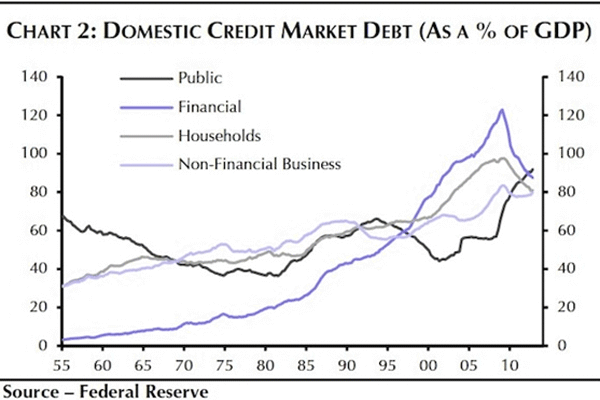My friend Neil Howe, author of Generations, The Fourth Turning, and other books and president of Saeculum Research, joins us today in Outside the Box with a succinct, eye-opening essay on generational differences in debt levels and attitudes towards debt.
I often write about the problems that come with over in debtedness, but we’re usually talking about public debt, here in the US or abroad. But personal or household debt in America is nearly as massive as government debt, as this chart shows:

As you can see, household debt was relatively stable from the mid-’50s until the turn of the century, when it ballooned for a few years until the Great Recession hit and then was subject to significant deleveraging in the years since. Still, as Neil notes, average household debt is nearly twice as high today as it was in 1989, with most of the increase coming in the form of mortgage debt, although student loans are taking a bite, too – they’re up sixfold, from $888 per household in 1989 to a painful $5791 in 2013.
Since these dramatic changes in indebtedness have occurred mostly in the past 20 years – in the span of a generation, that is – they have resulted in very different attitudes toward debt among US generations. The Silent generation (75+) was well-established before the changes hit, is the least burdened by debt – and sees debt in the most positive light, as an opportunity for financial advancement. But the debt they took on, back in the “good old days,†was mostly in the relatively innocuous forms of house and car loans. They weren’t subject to the wave of high-interest credit cards and “seductive Web-based come-ons for low-doc, no-down-payment bubble loans they couldn’t possibly afford,†as Neil puts it, that have plagued Boomers and Gen-Xers scrambling to keep up with the lifestyles of their elders. Millennials (today’s 20-somethings, roughly speaking), who have seen how the generation just ahead of them has suffered, are not surprisingly the most risk-averse when it comes to taking on debt.

